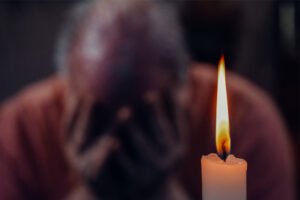
Depression and Aging
Mental health has gained more focus over the last several years. People are more conscious of mental health concerns, but many don’t realize that depression and anxiety can strike at any age. Many people believe that depression must begin in younger years and follow one throughout life. However, depression can be due to a chemical imbalance in the brain which can happen any time there are hormonal or physical changes occurring. Depression can also begin as a typical reaction to an event and becomes a problem when it interferes with life activities.
How to Spot Depression
Depression is not always easy to identify in adults. There are some red flags that you may notice if your loved one is battling depression.
Unwillingness to Participate in Family Activities
If your loved one was previously active and spent time with family members but suddenly not, this can be a sure sign of depression. People experiencing depression are sometimes less willing to spend time with others. They want to be alone rather than in a group. Some people are naturally introverts, so if this is not a change from typical behavior, your loved one may not be depressed.
Changes in Appetite
Changes in appetite can stem from medications or other physical illnesses, but it is also a sign that a mental health condition may be at play. Depression can manifest as a lack of desire to eat or overeating. This symptom is also an issue for younger people as well. However, in older adults, it may be more subtle. Many older adults begin to eat a little less as appetites have a tendency to ebb and flow. However, marked changes in appetite may be more than normal aging changes.
Fatigue
As we age, it is more challenging to do what we used to, but fatigue is more than being a little more tired than in younger years. Sleeping significantly more or the inability to participate in activities, social or physical, is a red flag. Sleeping a little more after a strenuous activity is not unusual, however.
Mood Changes
Beyond being sad, mood changes may be a sure sign of depression in adults. Sadness at the loss of a loved one is a normal reaction, but when that sadness begins to change someone’s personality, depression may be more than sadness. Anger and anxiety can also be manifestations of depression. Adults feeling depression for the first time are often unable to cope with the feelings, and it comes out as anxiousness or anger.
Final Thoughts
These are not the only signs of depression in aging adults. However, each of these changes can be sure signs that your loved one’s mental health is at risk. Getting treatment for mental health conditions can help your loved ones, no matter how old they are. If you are concerned about your loved one’s mental health, first speak to them. If you determine that depression might be the problem, contact their physician or a mental health professional for help.
